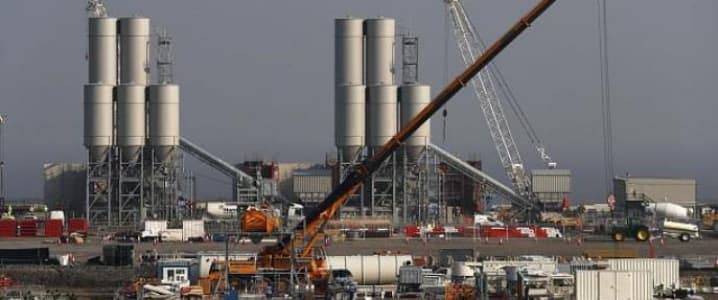Prime Minister May on Thursday approved construction of the Hinkley Point C nuclear facility despite much publicized design flaws, delays, criticism and cost overruns. This should not have come as a surprise. The Tories have long had an affinity for nuclear power.
The decision to build any new nuclear facility is about two things, comfort with the technology and money. When the original Hinkley Point deal was crafted, the government made a strong statement: we are ok with any nuclear technology as long as the builder takes the construction risk. In return the government offered extremely attractive subsidies to the French and their Chinese partners in the form of inflation indexed price guarantees for life of plant as well as low cost loans. Whether subsequent nuclear new-build receives the same generous terms remains to be seen. But the message is clear. If you build it we’ll make it worth your while and hand consumers the bill.
As for specific nuclear technologies, the government has also declared itself to be agnostic. The French will bring their super-sized albeit troubled EPR. The Chinese would like to showcase their Hualong PWR technology at the Bradwell site. The Korea Electric Power Company (Kepco) plans to join the Toshiba-GDF Suez consortia in Moorside with 3 AP1000 units. And Hitachi wants to build several ABWRs at Wylfa Newydd. So much for the idea of standardizing designs and learning and improving as you go.
Theresa May and her government are choosing big, expensive base loaded power stations to supply the UK electric grid. If they operate well these plants will generate large amounts of electricity on a near continuous basis (apart from refuelings) for perhaps fifty years or more unlike renewable energy sources. But they do so in the most capital intensive fashion imaginable. (And their operating costs are not low either.) In a way we would like to see this as a contrarian long term bet on higher electricity prices, but we’re not sure they’re that clever.
There is also an element of inter-temporal buck-passing here, shifting the burden to future generations. No sitting UK politician is likely to be around to bear the brunt of criticism from this decision. It takes at least ten to twelve years to build a nuclear plant assuming no construction delays. That makes it some other official’s problem around the year 2028. Related: Big Oil Flocks To Argentina As Permian Land Prices Skyrocket
We expect the political battle will begin to shift to the subsidy schemes for new nuclear. All the other builders will demand the same generous terms offered to the French and Chinese. Our guess is that the May government will again relent and offer other nuclear builders above market electricity price guarantees albeit perhaps on somewhat less egregious terms.
As we’ve previously noted, the Tories have long had a soft spot for all things nuclear whether it was Trident submarines or new power plants. This may also reflect the present strength of the May government versus Corbyn and the labor opposition. It also seems like a standard political strategy. Make difficult, unpopular decisions early in your term.
This has never been about carbon. For the pro nuclear lobby, always eager to showcase its designs, nuclear has always been the answer. It’s only the questions that change.
In a truly free market for electricity, high priced producers lose money or go bankrupt in the face of weak or declining demand which we now face. But in the present nuclear subsidy scheme, low power prices mean the government simply digs deeper into the pockets of its citizenry to make up the difference. This looks just like another regressive tax.
We’re not allergic to nuclear technology as such and believe there are promising small modular reactor technologies on the horizon (like LFTRs). It is the exorbitant price tag and the regressive, long term subsidy schemes that turn us off. Building a fleet of new gas fired power plants would provide just as much base load power for a small fraction of the cost, carbon emissions notwithstanding. Carbon sequestration might even look good compared to Hinkley Point.
But there is also a neo-liberal twist here that rankles. We are always going on about investors receiving returns that are appropriate to the risk they incur. Here, the plant builder assumes construction risk (although it is unclear how much without knowing how much of a contingency buffer that EDF built into the estimates that led to the price of electricity set by the government) but possibly minimal financial risk. And yet EDF and its partners may collect outsized financial returns. We suspect asymmetrical knowledge played a part in the bargaining, with the potential builders knowing a lot more than the amateurs in the government. Donald Trump did not do the deal for them. It looks as if the public will provide a significant subsidy to private providers of capital. We understand the Tories are supposed to be pro-business. But this deal would bring the blush of shame to Midas.
ADVERTISEMENT
By Leonard Hyman and William Tilles
More Top Reads From Oilprice.com:
- The Worst Oil Crisis Ever? IEA Sees Unprecedented Decline In Investment
- How Big An Impact Will A Rate Hike Have On Oil Prices?
- World’s Most Expensive Oil Project Could Finally Come Online


















